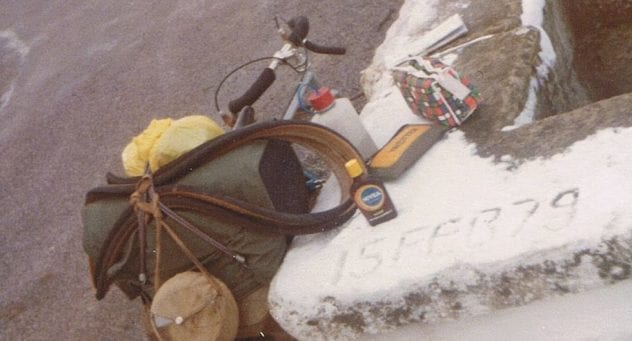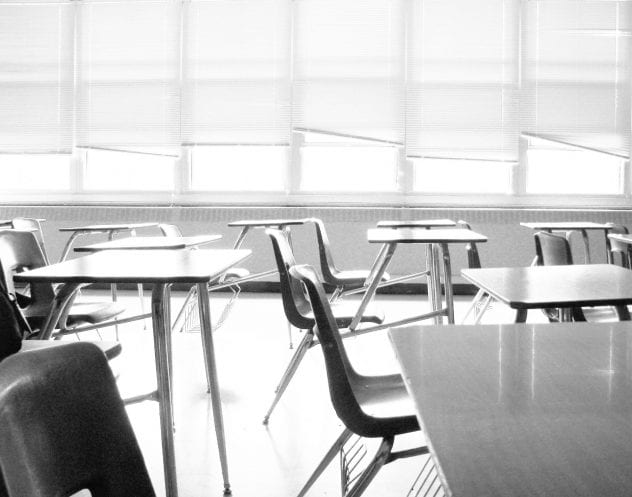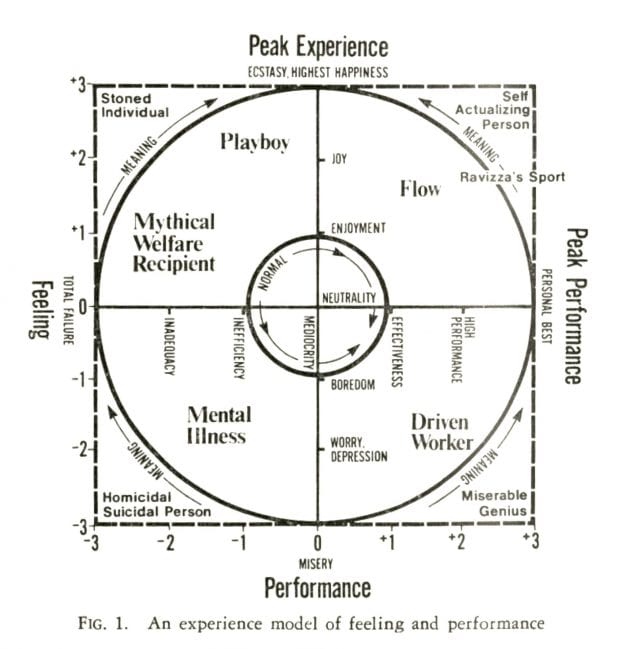 By Roel Krabbendam (Architect and Author on Education)
By Roel Krabbendam (Architect and Author on Education)
When I was 7 years old I jumped into a Lion’s Club pool in Hoffman Estates, Illinois and learned two things indelibly:
- Things are not always what they seem. In this case, the deep end looked just as inviting as the shallow end, and I had not yet learned discernment or how to swim.
- You’re on your own. In this case, all of the well-meaning people around me did not recognize the flailing kid as drowning. Luckily, I thrashed back to the pool edge.
In my life, meaning, focus and direction only emerged through doing. Perceiving, feeling and thinking (or perfinking as David Kresch calls it and Gillian Judson describes in this TedX talk): they were certainly a critical part of the mix, but these functions were so abstract that they left me perpetually at sea. Everything felt the same: like water. Like drowning. It was only in action that I found emotional engagement and purpose. It was only by doing that I found grounding. Thinking felt pointless without feeling and doing.
I left high school near the top of my class, drowned in the abstraction and flunked out of Cornell in 2 years, and lit out for Africa on a bicycle borrowed from an uncle in the Netherlands. There is nothing abstract about 10,000 kilometers on a bicycle, about rain and snow and not enough money and where do I get a job. There is nothing abstract about hunger, or sometimes meeting a cute girl, or climbing the Pyrenees in first gear or picking oranges in Spain. There is nothing abstract about a quest for Africa. There is however a profound sense of emotional engagement and purpose and meaning and accomplishment that school never gave me.
That, in a nutshell, is why I believe we need to re-invent school. In its current all-too-typical manifestation, school nurtures thinkers instead of Perfinker-doers. It offers endless abstraction, but nothing meaningful to do. All those papers and projects and discussions and examinations: they don’t affect change. All too often, they nurture passivism instead of activism. They turn kids into obedient recipients instead of empowered participants. I suggest that we retire the belief that school will teach our children just to think. We need to reconsider the feeling and the doing of school.

Let’s think about what we’ve built.
We set out to build a risk-free environment for our children, a place free of real consequences, what psychologist Erik Erikson1termed a “moratorium” in which kids could experiment freely with adult roles. We created an unrealistic environment of certitudes, in which everything was known and only needed to be learned. We smothered all our emotions with “dispassion” and “professionalism” and “rationalism”, and exiled expressions of real, disruptive feeling to the office. In the most egregious cases, we called in security. We removed so much risk that asking someone to the prom might be the scariest challenge of high school. We turned an environment that could become a tool for creativity into a tool for alignment. All those nasty, gnarly, and strange bits, the exceptions and uncomfortable and disruptive emotions: instead of nurturing them for their exciting potential, we discard them as waste. This approach is practical, it is efficient for crowd control, it keeps the gears greased and operational, but it yields a bland and oppressive environment removed entirely from the real world and anything of actual consequence. Risk, emotion and meaning all got sucked out together.
The model begs reconsideration.

With the exception of those parents who just want their kid to get into college and the politician who just wants to win the international technology race, I suspect most of us hope to nurture fully-realized, completely self-actualized adults. The work of Dr. Gayle Privette2is exceptionally inspiring to me in this regard. His Model of Experience (see diagram below) published in the early 80’s identifies the self-actualized person as performing in a zone of flow to achieve both Peak Performance and Peak Experience.
Joy and Meaning, in this model, derive from trying your hardest (Peak Performance), but also having amazing experiences (Peak Experience). Joy and Meaning: are these not exactly what we would wish for our children? Yet all we foist upon them is Peak Performance, a recipe for high performance and driven workers but not for joy and self-actualization. Why was that year on a bicycle in Europe so consequential for me? It offered exceptional experiences even as it required uncommon performance to survive. It offered Beauty and Risk and Adventure and a Quest. It offered Magic. It was these Peak Experiences that offered me what school had never succeeded in delivering: hope and joy and meaning. Let us re-imagine school as a locus brimming with peak experiences.
There’s plenty of conversation around 21st Century Learning these days. All those C’s presumably hold the keys to our children’s future success: We say that we need Critical Thinking and Creativity and Collaboration and Communication (or Cooperation, Connection, Character, Caring, Contribution, Competence, Commitment, Concentration, Confidence, Compassion, Culture, Connection, Citizenship…), but we keep offering our students the same basic educational experiences, expecting different results.
We promote Creativity: but where is Meditation in our schools to teach students intuition? Where are Caves and Nests to encourage concentration? Where is the focus on Magic, to set sights higher than mere competence? Where are the Workshops to offer tools and skills in making? Where are the Safaris to promote empathy? When do we champion Subversion as a path to invention?
We exalt Curiosity: but where is Adventure to confront, body and mind, the unknown? Where are the Shrines and Media Arrays and Big Maps to inspire imagination and a sense of possibility? Where are the Quests to imbue questions with epic significance? Where are the metaphoric Bullfights to show how questions tackle problems?
We strive for Collaboration: but where are the Apprenticeships to honor mastery? Where is the focus on Passion, to inspire Leadership? Where are the metaphoric Sandboxes, to offer Agency? Where are the sustained Climbs to build teamwork? Where are the ambitious Projects like Gardens to demonstrate the beauty of teamwork? Where are the Games, to link learning to Joy?
We emphasize Communication: but where are lessons in Conversation to teach students how to Listen? Where is the Speaker’s Corner, to teach them to speak? Where is the focus on Storytelling, and where are the Campfires, to teach the power of authenticity and the ability to create meaning? Where are the experiences poignant enough to inspire Writing worth reading?
We focus on Critical Thinking: but where is Demolition, for lessons in shattering clichés? Where is dynamic Listening, to insure understanding? Where are the small Round Table conversations to challenge preconceptions? Where are the Puzzles, to teach endurance and a growth mindset? Where is the Market of ideas and resources to promote comparison and diversity? Where are the carefully managed challenges, the Races and Duels that promote Resilience, in order to thrive on critique?
The point is not that School is devoid entirely of these rich, emotional experiences and environments: only that they are few and far between. They should be the core of the enterprise: every day. We take the most fundamental years of our children’s lives, and offer them air and abstraction and dispassion. We suck the emotion out of their lives. How about an entirely different conception of school? How about a place devoted to intense experience, powerful peak experiences, finding joy and meaning and purpose and effecting change? We don’t need to throw our kids into the deep end of the Lion’s Club pool in order to offer them emotional learning experiences.
We just need to re-imagine school.
About The Author
Roel Krabbendam is an architect and author focused on education.
His collection of essays re-imagining the experiences and environments of school (school, Ludovicus, Boston, 2018, 280p) is now available on Amazon and at www.futureofschools.com.
References
- Erikson, Erik, Childhood and Society, “Eight Stages of Man” (W.W.Norton, New York, 1950)
- Privette, Gayle, “Experience as a Component of Personality Theory”, Psychological Reports (1985, 56) pp 263-266.




Roel, your post is very inspiring but as I read through it a second time I also found it a bit frustrating. These ideas are all wonderful in the abstract, but what do they look like in the walls of a school? In our school we do teach meditation and conversation. We have maker workshops and students solve in depth puzzles but I don’t think we come close to your idea of adventure and metaphoric bullfights, I would love to see a follow-up piece with concrete ideas that give me ideas about how to make this a reality.
Hi Carla,
Thank you for your response, and you’ve hit the nail on the head: how do we make it real, and scalable, and affordable, and practical and sustainable…? I believe the answer lies in understanding adventure. My book goes deeper, but here are some thoughts:
Why did I want to go to Africa at all? Because I loved Tarzan movies as a kid (those black and white ones with Johnny Weissmuller and Maureen O’Sullivan), and it captured my imagination. I spent my youth held hostage by a story. Adventure requires a story, an impetus, a mystery that captures the imagination. Stories are all around us, but they are in my experience rarely utilized to instigate or to romanticize or to illustrate mysteries. I believe school can and must embrace stories as catalysts to learning.
What made that year on a bicycle so compelling?
First, The objective seemed unlikely, the journey impossible. Adventure requires risk, or at least uncertainty. This is something I delve into more in my book, but without uncertainty, there’s no romance. Without romance, there’s no story. Adventures make heroes out of us: they build identities. You come back from an adventure with amazing stories to tell. How often do you give your students experiences worth telling stories about? I believe this is scalable, that it can be accomplished locally, and that adventure beckons around every corner if you have the right mindset.
Second, the people I met sustained me. We recognize community as a key to learning, but I think the image is of a closed circle when it should be more like a string of knots, each knot an interaction with someone of consequence to you. Adventures lead you to strangers. You build your story as you tell it to each person you meet. Each person in turn offers you their own gifts: their knowledge, their story, maybe a paella and a glass of wine…I digress. A café owner in Morocco treated me to a meal because I looked tired. A Canadian women gifted me with a copy of Don Quixote (and 38 years later introduced me to Gillian Judson). A youth hostel proprietor taught me to parge walls and gave me meals and a bed if I would lend him a hand. Interactions with strangers teach you, inspire you, and allow you to build your own story, your own identity. I believe the model of 1 teacher and 25-30 kids for a year must yield at least in part to a model in which kids follow leads all over the school, the community or even the world, virtually or in-person.
Third, I had memorable experiences. Indelible things happened. I went to sleep on a mountaintop in southern France with a full moon rising to my left and a violent lightning storm to my right, the light show ferocious. I walked to work picking oranges in Spain in the pre-dawn hour to see a satellite falling its way across the sky. I witnessed a torrential rain turn to snow on Spain’s central plateau. I was arrested for sneaking into the harbor in Casablanca, and then taken to meet the family of the arresting officer for an evening of wine and stories. Adventures offer the possibility of unexpected beauty and grace. We obviously can’t replicate the unexpected, but we can create schools brimming with potential. Why do we only send our most damaged kids into the outdoors on programs like Outward Bound, and not everyone? Why do we avoid rain and snow and wind, when they make the outdoors epic? Why do we compartmentalize learning into classrooms, and discourage exploration? In first grade I once walked into a fifth grade classroom by mistake and was blown away by the detailed models of the planets hanging from the ceiling (I think the room was arranged to feel like outer space). Why is that experience not more commonplace? I think school can do this: strive for the epic and the sublime.
This was a long-winded answer, Carla, but I’ve only scratched the surface. My book is devoted entirely to the question of experiences and environments that will make learning come alive. I know this: Programs like Expeditionary Learning prove that schools need not be insular. Techniques like Spaced Learning prove there are alternatives to our conceptions of Time In Class. I think the real magic, the key to successful learning, is to focus on the experience of the student: to the actions, interactions and environments that define their experience.
Is school really so antithetical to the epic and the sublime? To magic?
I truly welcome the conversation.
Sincerely,
Roel Krabbendam
Thank you for writing me such a detailed response. In our school we’re trying to implement much of what you describe, while still jumping through the hoops set out by our Ministry of Education…. which is not easy! But you’ve ginen me much food for thought and I’ll be considering ways to push the boundaries of what we’re doing. I think your quesion, “How often do you give your students experiences worth telling stories about?” is a wonderful framework for looking at our units and lesson plans. I feel my teachers have been successful whan parents come in and say, “What are the kids doing in _____ class? My child can’t stop talking about it.” Using your question while we’re planning may ensure that this happens more often.
I also looked up some of the information available through Expeditionary Learning – excellent! I’m ordering your book on Amazon so that I can look further into your ideas. Thank you so much for sharing – your passion is contagious!
Thanks Roel and Carla (shout out to you, Carla!) for starting this conversation. I, too, was taken by the same question you mention above, Carla. I think that is the crux of a place to start to make schools exciting places for kids to be in. And, when I say exciting I mean relevant, joyful. True places of learning. The hoops we have to go through that are other-imposed can sometimes zap teachers’ energies for creating spaces like this in their classrooms, but more importantly in the entire school. I’ll be looking into your book as well and I’d love to hear more about what you are thinking Carla…
Hi Elisa,
I so relate to your observation about hoops. The years I spent on this book confirmed for me over and over the extent to which teachers are the key to this enterprise, and the degree to which they are often hampered, diminished and even distrusted.
I very much appreciate your perspective on school as “place”. This is exactly why my book addresses not just the environments of school, but also the actions and interactions: they all interact to define the experience of our kids.
I do hope you’ll share your thoughts on the book: these conversations are so helpful and valuable. I fear even my long-winded answer to Carla’s query does an injustice to the issues, but promise you my best effort in responding. While I’m offering a framework, a lexicon, and a perspective, and not a specific curriculum, all this work has given me lots of ideas and opinions I’m happy to share.
Thank you in any case for your message!
Roel, Elisa and Carla…I would be happy to organize a discussion time/forum through CIRCE. Let me know!
Warmly,
Gillian